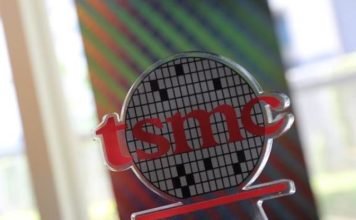 Telecom Lead India: India’s flopped 2G spectrum sales – that brought Rs 9400 crore against Rs 40,000 crore target — have raised several questions.
Telecom Lead India: India’s flopped 2G spectrum sales – that brought Rs 9400 crore against Rs 40,000 crore target — have raised several questions.
First and foremost is the intervention of Supreme Court in the day-to-day operations of the telecom sector.
If the Supreme Court did not ask the government to conduct auction for the 122 cancelled licenses, the controversial spectrum auction would not have happened.
It caused job loss in India. Moreover, it resulted into exit of telecom operators from India. MTS India, an operator affected by the Supreme Court action
The second issue is over-pricing of spectrum. The government should not have kept base price or base price should have been lower.
During the two-day auction, telecom players did not find anything valuable in telecom sector. It is bleeding now.
“In the overall analysis the high reserve price and several large markets remaining unsold will prove to the Government that though spectrum may be a scarce resource, it certainly does have a finite price. Increasing the reserve price to stratospheric levels will not result in any greater value being realised,” said Idea Cellular Managing Director Himanshu Kapania.
The telecom industry is still trying to adjust to the reality.
RIL did not participate in the auction. Airtel invested for Assam circle.
Telenor finance chief Richard Olav Aa said India’s mobile phone market is bound to consolidate after an expensive licensing process. Consolidation and further licence sales will present expansion opportunities.
The government is responsible for the show. India cannot have 13-15 operators to run their show and make huge losses. India’s GDP growth plummeted to 5-6 percent from 8-9 percent three years back. ARPU has become an immovable statue. ARPU does reflect the potential / lack of ability to pay.
A day after the dull 2G spectrum auction, Finance Minister P Chidambaram described telecom as a stressed sector and said the government would work out a strategy to assist industries reeling under the impact of temporary economic slowdown.
Telecom Minister Kapil Sibal on Friday said that the telecom story has not remained the same post 2007. Policy delays affected the sector. Look at Airtel. The country’s largest telecom operator did not even commit funds for additional spectrum (excluding blocks in Assam).
Industry is trying to be bullish about telecom.
Kotak Securities has upped the price targets for telecom stocks after a damb squib response to 2G auctions. Kotak Securities feels it’s a favorable outcome for the industry.
IDFC said four circles (Delhi, Mumbai, Karnataka, Rajasthan) had no demand and the provisional winning price saw an uptick only in one circle (Bihar) while Delhi, Mumbai and Karnataka account for about 50 percent of all India reserve price.
The higher reserve price makes viability difficult for new entrants and hence, making life easier for incumbents. IDFC now turns positive on the telecom space post Bharti numbers which showed rationality exhibited by incumbents, reduced competition and likely failure of 2G re-auction, leading to lower reserve price/ one-time spectrum charge.
Expect incumbents to raise tariffs to pass on the increased spectrum charges due to the one-time spectrum levy. Recommend adding to the telecom space with an overweight stance.
According to UBS, Vodafone, Idea and Bharti won spectrum in 14, 8 and 1 service areas respectively whereas Telenor and Videocon won spectrum in 6 service area each. There were no bidders for Delhi, Mumbai Karnataka and Rajasthan.
With the auctions now over, we believe the stage is set for a significant price hike. UBS likes both Bharti Airtel and Idea Cellular as long term investments after the auction of 2G spectrum got over.
UBS is of the view that the voice per minute realizations can improve significantly (25-30 per cent) over the next four quarters driven by a combination of tariff hikes and elimination of free minutes. Data revenues should provide a medium-term growth driver.
Vodafone India said it always maintained that auctions are the best and the only transparent method for allocation of spectrum. Its decision to participate in the 2G auction was to secure additional spectrum in many circles where it has not received any new 2G spectrum since 2008.
We need regular and long-term policies.





